Period of Adjustment (1962)
“You all are going through a perfectly natural period of adjustment — that’s all.”
|
Synopsis: |
|
Genres, Themes, Actors, and Directors:
Review: Indeed, there’s no excusing Hutton’s obnoxious treatment of Fonda from their first married moments together, driving in a used hearse he purchased without consulting her: … and we struggle to understand what she saw in him in the first place. While we’re meant to have compassion for Hutton as a damaged vet afraid of his ability to “perform”, all we feel is deep regret for Fonda’s bad choice. Meanwhile, their marital difficulties are echoed in a parallel story of Franciosa finally standing up to his overbearing father-in-law (John McGiver) and quitting his job: … but we struggle to sympathize much with him, either, given how poorly he treats his wife (supposedly once “homely”, though she’s actually quite beautiful) and his young son, whose beloved doll he cruelly throws into the fire: [Nice try, Tennessee; I know you were going for something a little less Southern Gothic, but this scene alone … ] There are attempts at romantic “comedy” by having Nettleson see Fonda in Franciosa’s house and misinterpret her as his mistress: … but this doesn’t really lighten things up. Meanwhile, setting the film on Christmas Eve while a group of increasingly drunk carolers make their rounds through the neighborhood also doesn’t help to lift spirits. By the time Williams tries to wrap things up by having the women better understand their poor emasculated husbands, we still can’t help feeling sorry for them (the women), knowing they’re in for some rocky years ahead. Notable Performances, Qualities, and Moments: Must See? Links: |
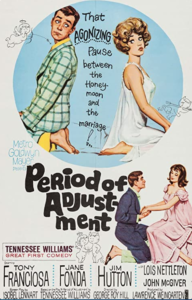
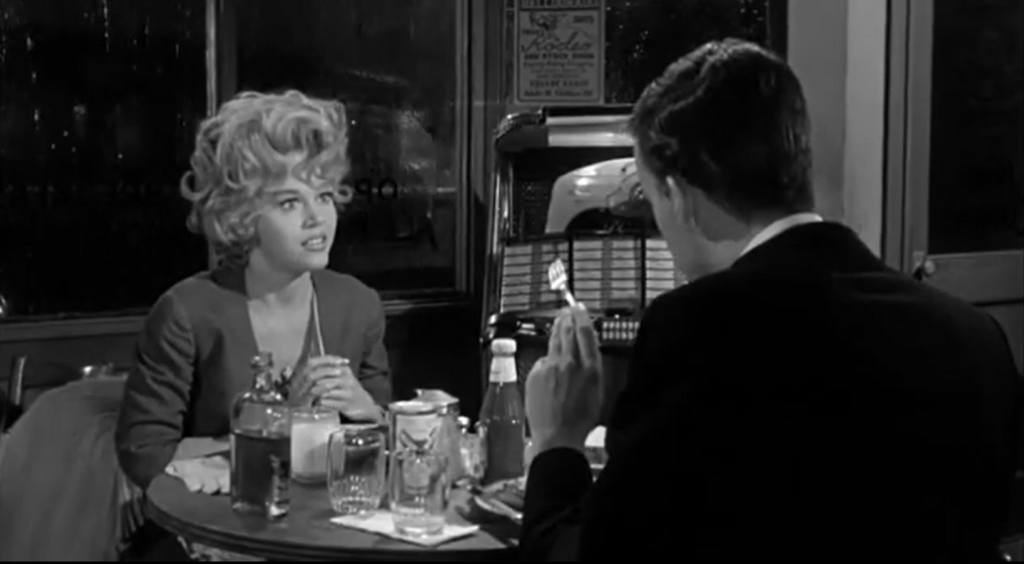
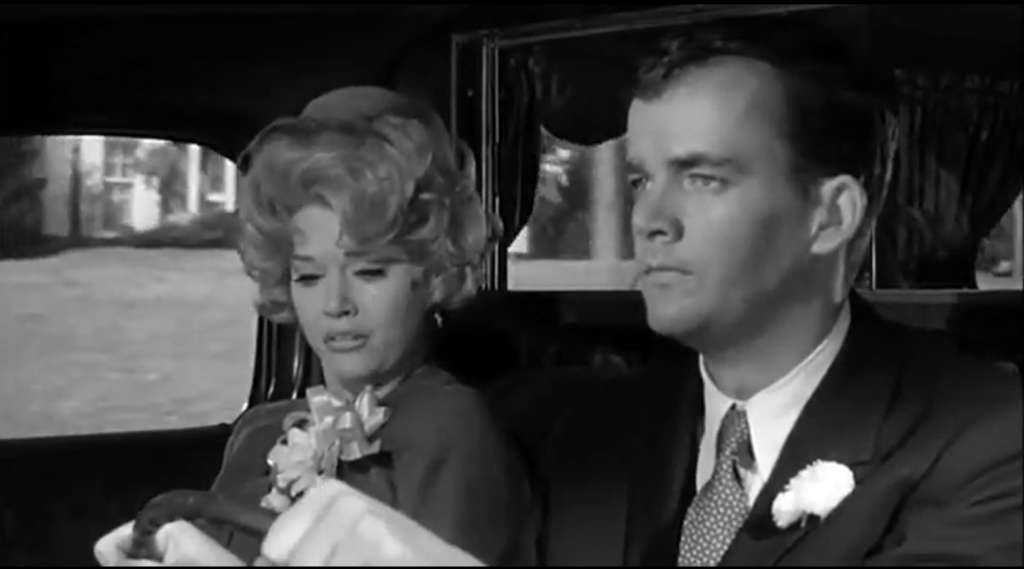
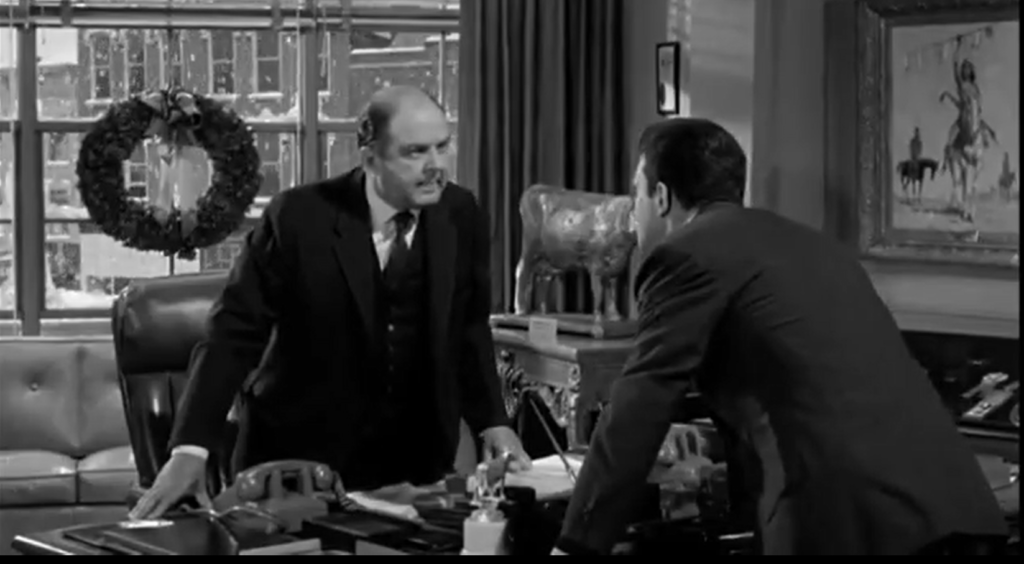
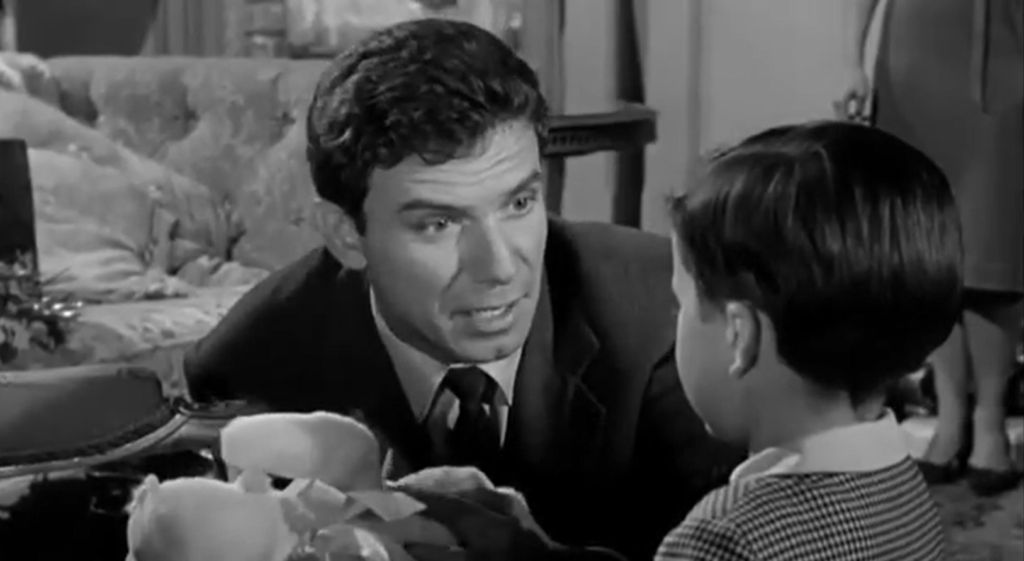
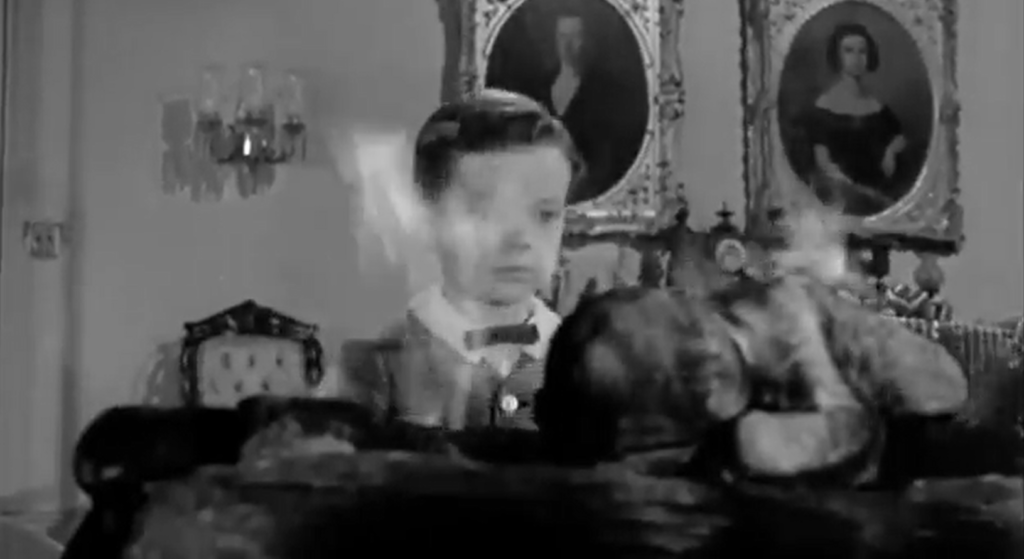
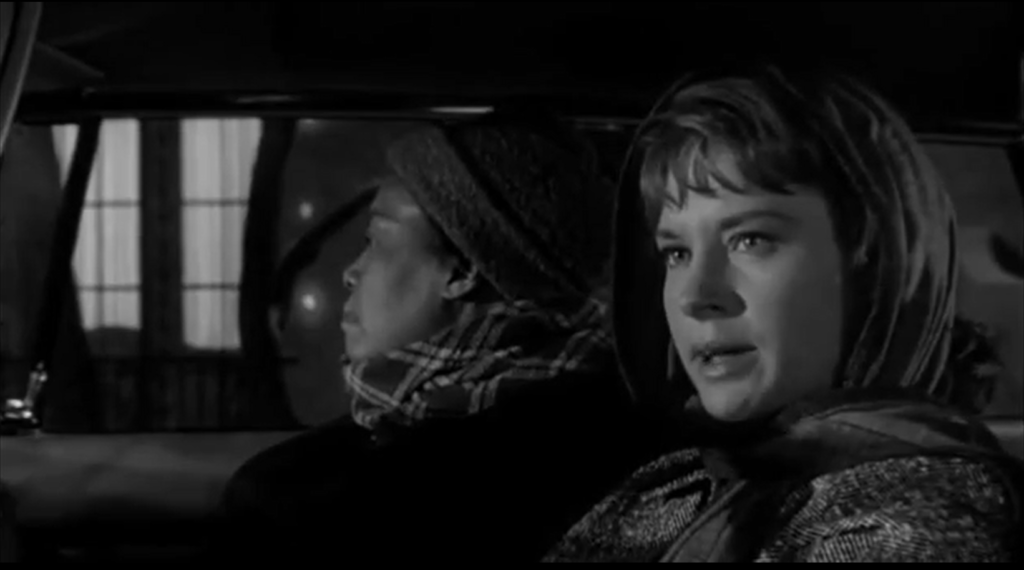
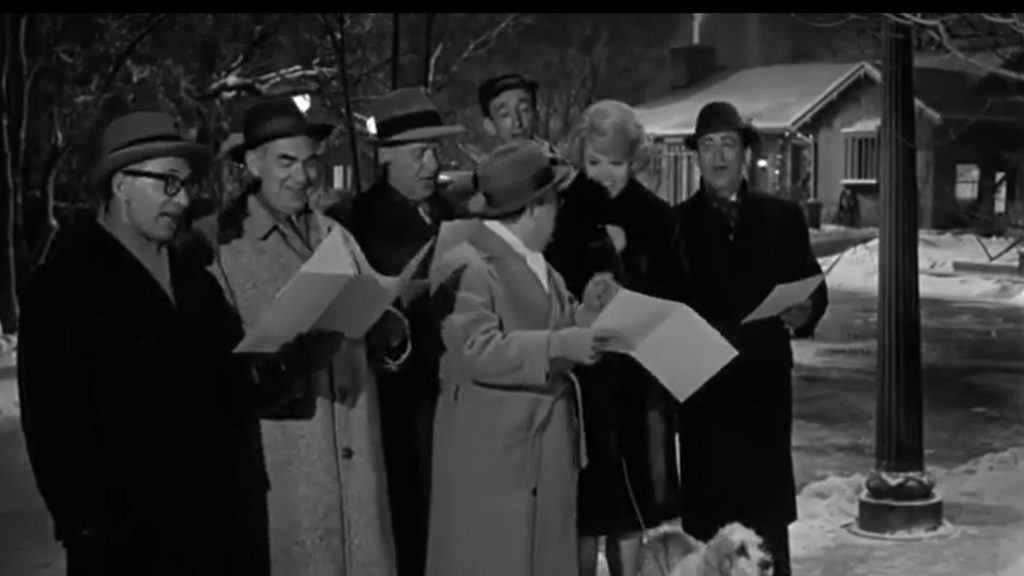
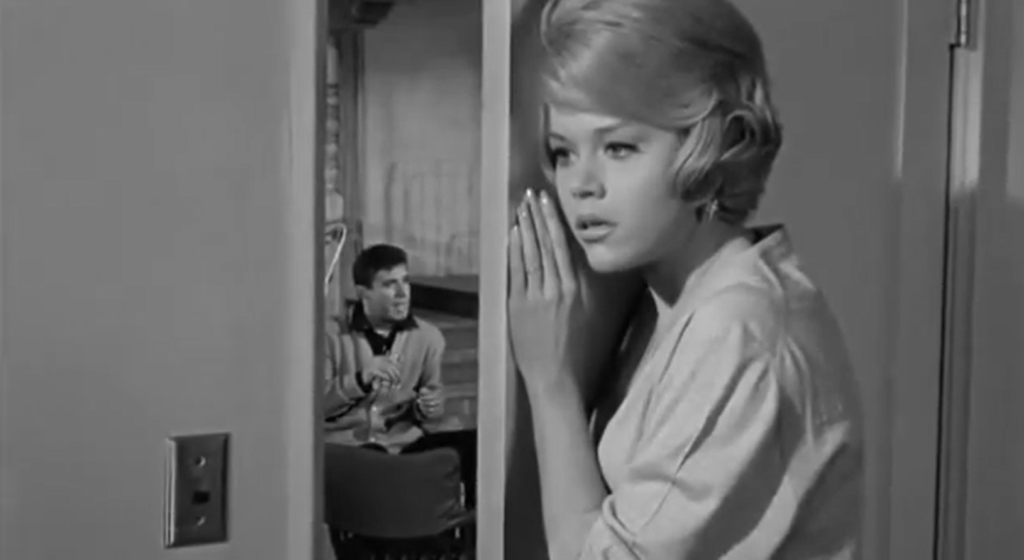
One thought on “Period of Adjustment (1962)”
First viewing. Not must-see.
‘POA’ is certainly an ‘outlier’ in Williams’ work. There’s quite a bit in its tone that sets it apart from all of his other plays. (The screen adaptation – by Isobel Lennart – keeps the play rather intact, aside from the removal of some ‘colorful’ language and terms that aren’t really necessary. In a number of cases, Lennart actually rearranged content artfully for the screen.)
The largest point Williams is making (which comes out through Franciosa’s character) deals with masculinity – and the societal myth that a man must be a ‘Superman’. This theme is illustrated / debated nicely.
But, unfortunately, the script overall is strained and the characters are too often needlessly strident – as though Williams (more comfortable with drama than comedy) couldn’t restrain himself from overdoing the plot’s conflicts. (It should be noted, though, that some of Tennessee’s funnier lines in the play aren’t in the screenplay.)
What could have been more compelling is, instead, often awkward and at times unconvincing.
Fave moment: Fonda calls up her Daddy to say hello and that she wants to visit. (It’s a sequence that reveals the kind of comic ability that Fonda would show off more successfully the following year in ‘Sunday in New York’ (a personal fave).